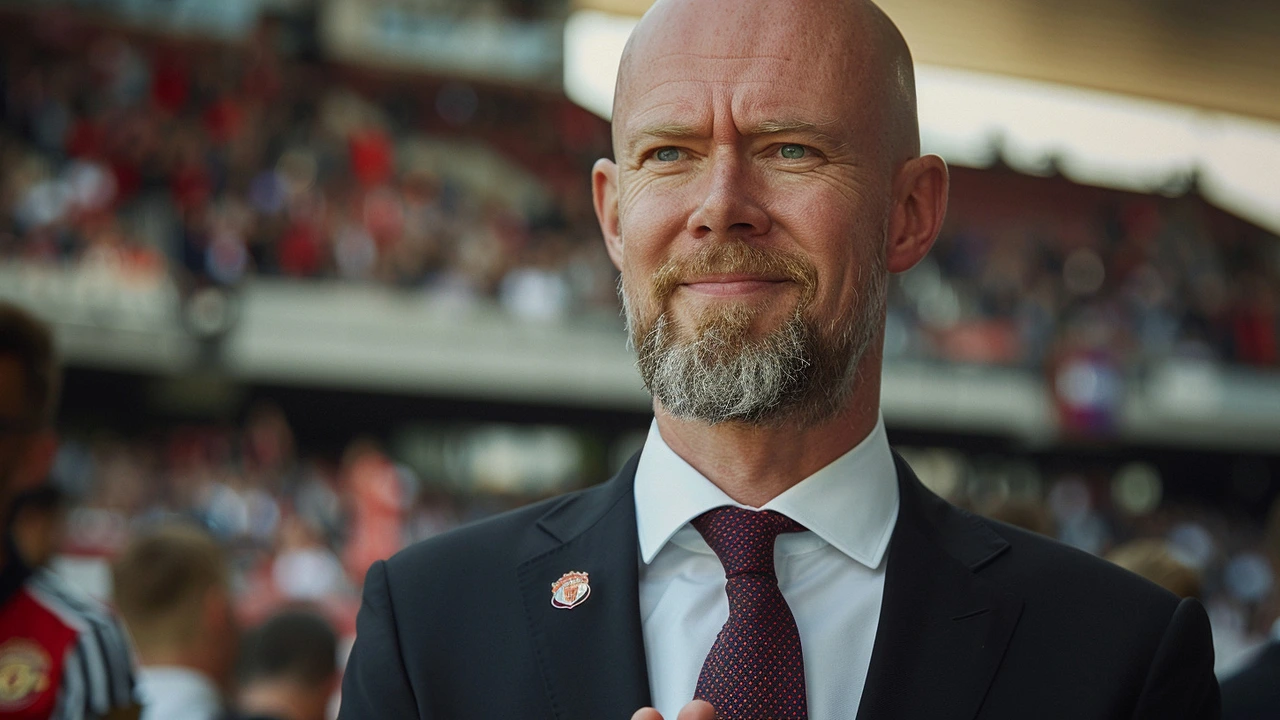
Dwight Yorke Believes Erik ten Hag's Tenure Hinges on FA Cup Success
Earning the endorsement of Dwight Yorke, a former Manchester United forward and a figure who is anticipating a high-profile managerial career himself, Erik ten Hag finds himself at a crucial juncture in his tenure at the club. According to Yorke, the football world will be closely watching if Ten Hag's future as Manchester United's manager will be solidified by winning the upcoming FA Cup against Manchester City. Yorke contends that a victory in this significant competition could tip the scales in Ten Hag's favor, securing his place amid a backdrop of managerial uncertainty.
First Season Triumphs and Second Season Struggles
Reflecting on Ten Hag's first season in charge, the Dutchman seemed to have seamlessly integrated into the United fold. He had a promising start, guiding the team to a third-place finish in the Premier League. This achievement was supplemented by a triumphant run in the Carabao Cup, where United clinched the title. Fans and pundits alike had high expectations for the following season. However, the current standing reveals a stark contrast. Defensive issues have plagued the squad, resulting in frequent and substantial goal concessions. This defensive fragility has been coupled with an uncharacteristic scoring drought, which has placed the team on shaky ground in various competitions.
The collapse in form is not restricted to domestic arenas alone. Manchester United's performance in the Champions League has been lackluster, culminating in an early exit from the prized tournament. These cumulative failures have led many to speculate about Ten Hag's job security. The added pressure of maintaining the club's status and regaining their historical dominance only magnifies these challenges. According to Yorke, the disappointing run could potentially lead to Ten Hag's ousting unless he manages to secure a major trophy to offset these negative developments.
Scarcity of Elite Replacements
Addressing the managerial speculation, Yorke highlights a critical aspect often overlooked in discussions about potential replacements. The availability of elite managers, those truly fit to lead a club with the historical and competitive stature of Manchester United, is alarmingly scarce. Yorke emphasizes that while there are numerous 'good' managers, very few meet the criteria to be deemed 'elite'. This shortage adds another layer of complexity to any decision regarding Ten Hag's future at the club.
Why is this distinction important? For a club like Manchester United that has built its reputation on consistent excellence and a legacy of trophies, the replacement of a manager is not merely about filling a vacancy. It involves a strategic decision that could steer the club's direction for years to come. The scarcity of elite candidates means that any move to replace Ten Hag must be carefully considered. Rushing into a decision without a suitable and superior alternative can lead to further instability and undermine the long-term ambitions of the club.
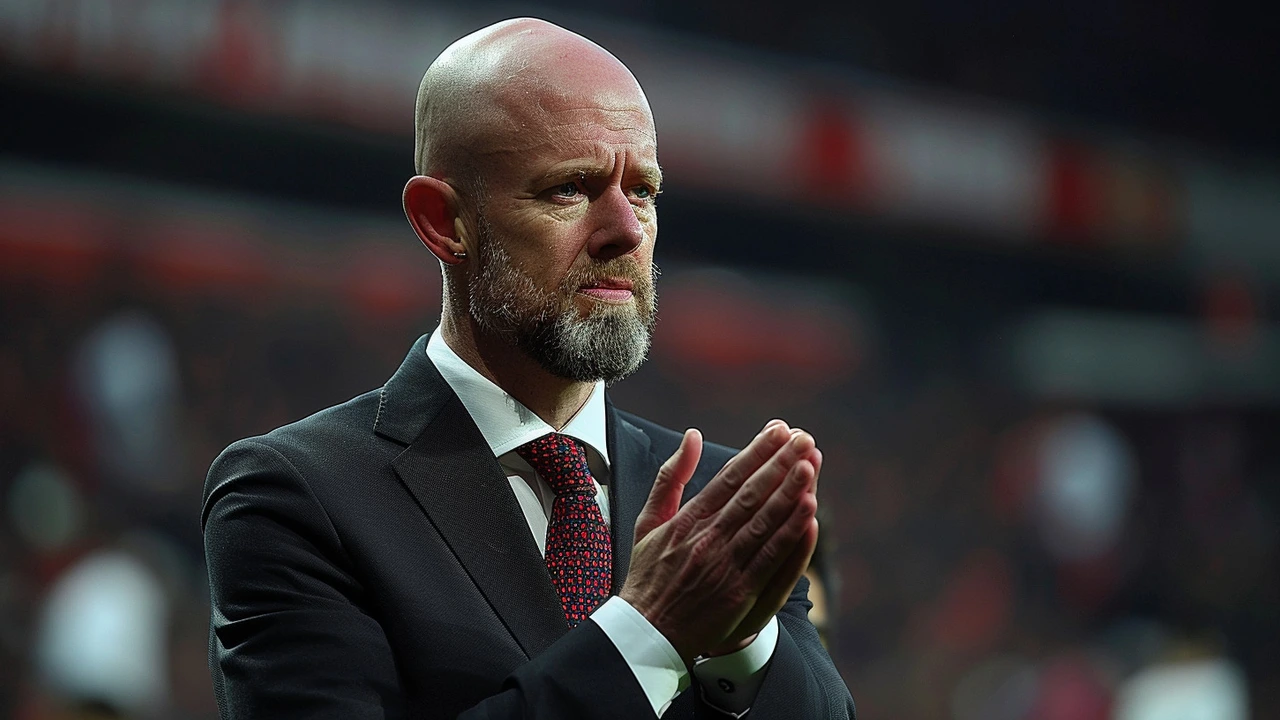
Yorke's Perspective on Ten Hag's Potential Success
Yorke, leveraging his insights as a former player and a prospective manager, offers a nuanced view on Ten Hag's tenure. He acknowledges the successes and shortcomings while pointing towards the possible redemption that an FA Cup victory could bring. According to Yorke, securing two major trophies in as many years would not only silence the critics but also pave the way for continued growth under Ten Hag's leadership. This perspective is rooted in the belief that consistency and stability are key to achieving long-term success in football management.
Winning the FA Cup could reinvigorate the team's confidence and serve as a turning point. It could provide a much-needed morale boost and signal a return to the competitive ethos that has historically defined Manchester United. From a broader viewpoint, Yorke's stance reflects a critical understanding of football dynamics where immediate results and long-term planning often have to be balanced delicately.
Challenges and Opportunities Ahead
Moving forward, the obstacles facing Ten Hag are multifaceted. The team must address its defensive woes and rejuvenate its attacking prowess to compete at the highest levels. This involves not just tactical adjustments but also addressing any underlying issues within the squad's dynamics. Additionally, navigating the pressures of a club with as rich a history as Manchester United is no small feat. Every decision will be scrutinized, and every match will be a testament to Ten Hag’s capability to steer the club out of the current tumult.
Despite the ongoing struggles, there are still opportunities on the horizon. The FA Cup presents a tangible target, a chance to redeem a season filled with disappointments and turn it into one remembered for resilience and revival. Yorke’s endorsement underscores the potential for Ten Hag to cement his legacy at the club through perseverance and strategic victories.
The Broader Implications
In the broader landscape of football management, Yorke's remarks provide a valuable case study. They highlight the intricate balance between short-term results and long-term planning. The scarcity of elite managerial talent forces clubs to be more strategic in their decision-making processes, considering not just immediate performance but also the trajectory of the team's development. Moreover, it emphasizes the importance of internal support and belief in a manager’s vision, even during periods of adversity.
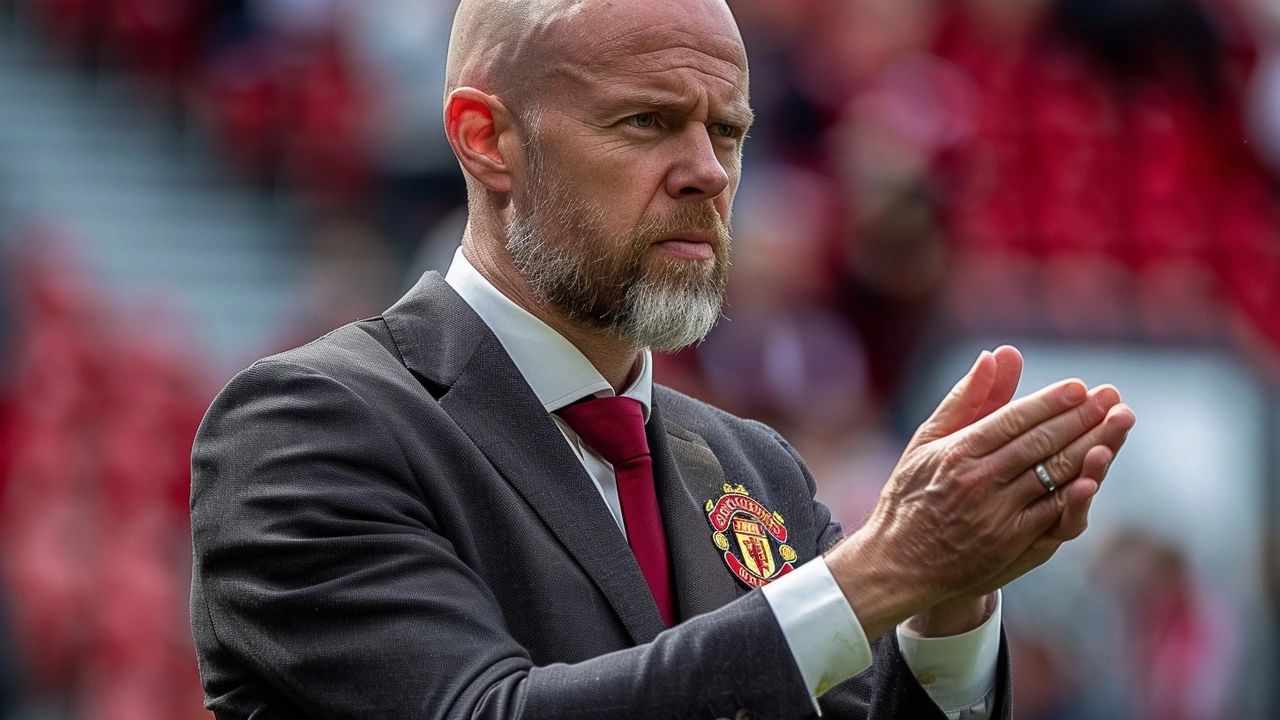
Final Thoughts
The upcoming FA Cup final against Manchester City is more than just a match for Erik ten Hag and Manchester United; it is a defining moment that could influence the club's future direction. Dwight Yorke’s candid insights offer a unique perspective on the challenges and opportunities that lie ahead. As the football world watches closely, one thing is clear: the outcome of this highly anticipated clash will have far-reaching implications, extending beyond the pitch and into the strategic chambers of Manchester United.
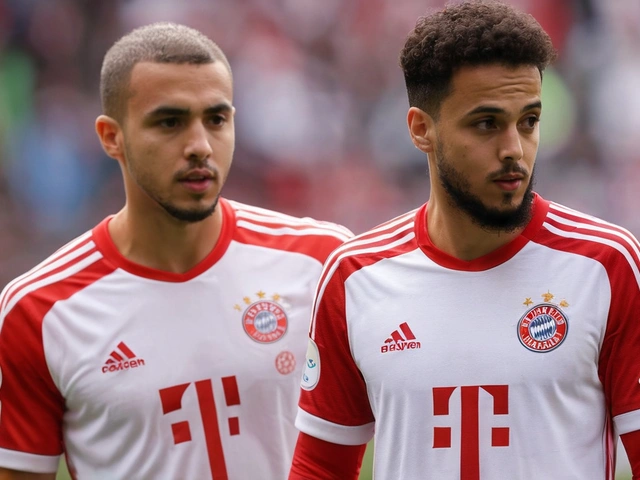
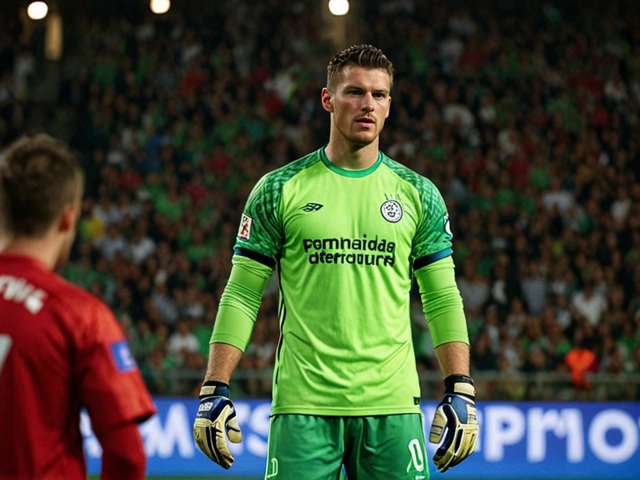
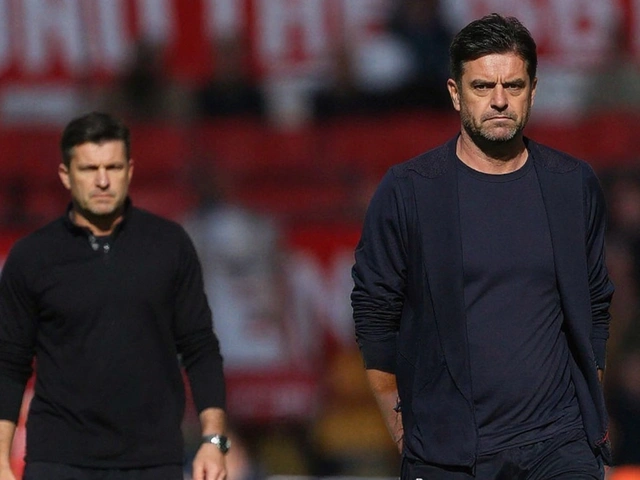
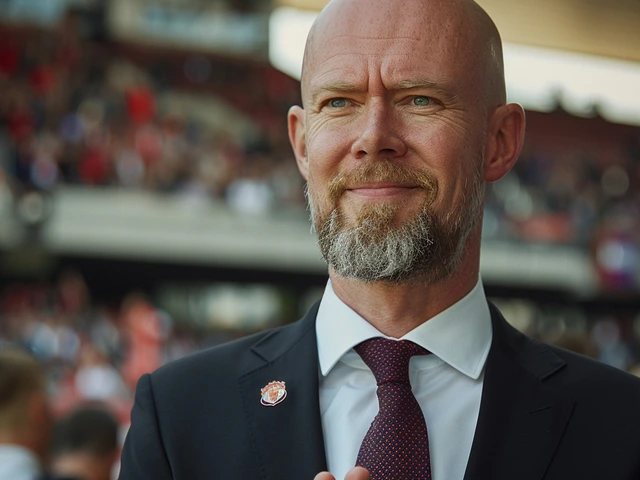
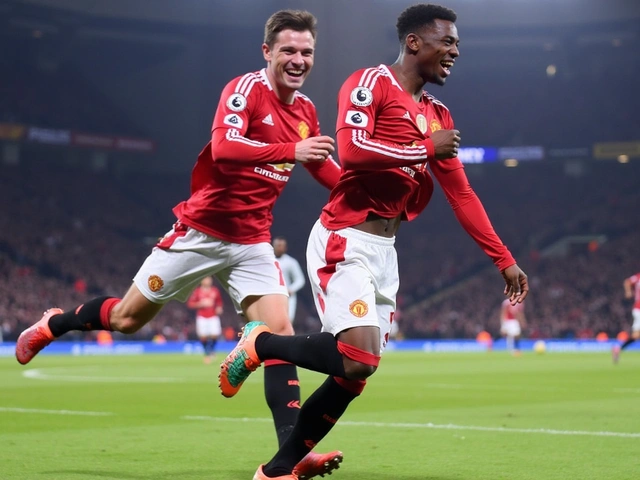

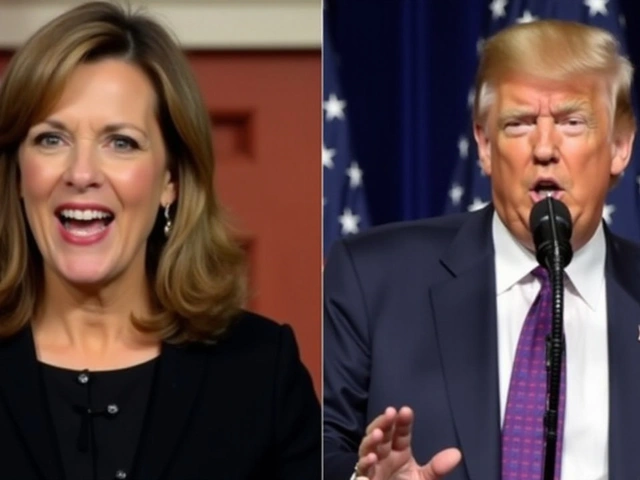
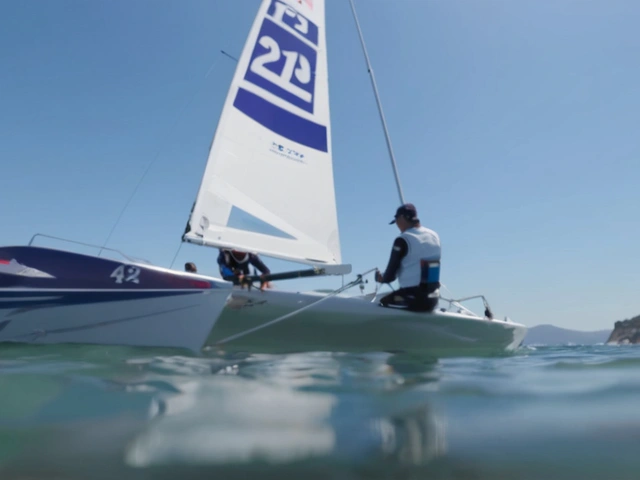
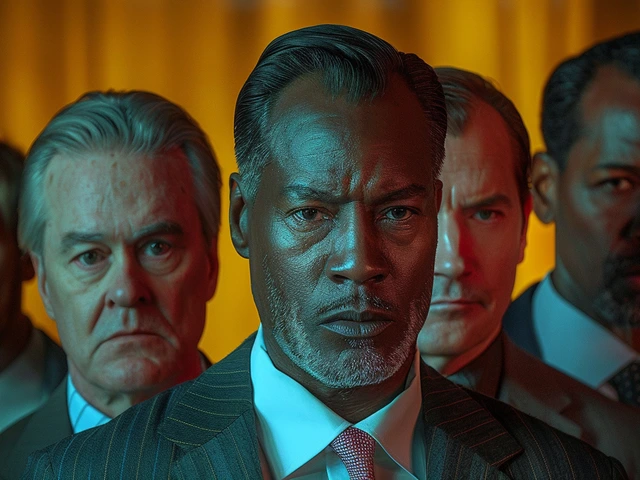

What a great analysis! It’s exciting to see Yorke’s perspective and the clear call for stability at United.
The weight of a single cup can bear the soul of a manager, and Ten Hag stands at the precipice of destiny.
Wow!! 🎉 Ten Hag could really turn the tide with a win! 🎯 Let’s rally behind the lads and hope that FA Cup triumph lights up Old Trafford!!! 🚀
Sure, because the only thing Manchester United needs is a single trophy to magically fix all deeper issues-defense, mentality, squad depth-right?
The narrative that a cup will ‘save’ Ten Hag is utter nonsense; the board should be evaluating tactical incompetence, not clutch cup luck.
Honestly, I think if they can scrape a win against City, the fans might forgive a lot more than just the league position.
Look, Ten Hag’s contract isn’t just about one match-it's about building a culture. If they win, it’s a step forward, not the finish line.
From a strategic lens, clinching the FA Cup could catalyze a paradigm shift, energizing the squad’s cohesion and unlocking latent performance synergies.
Yorke’s endorsement reveals how fragile Ten Hag’s standing has become.
They’ll fire him after the cup-just like the elite love to sabotage English clubs!!!
The FA Cup, in its historic romance, often becomes a crucible where managerial legacies are forged or shattered. Erik ten Hag, arriving with the aura of a modern tactician, has already reshaped United’s playing philosophy. Yet, football is not merely a chessboard of tactics; it is also a theater of narratives and expectations. Dwight Yorke, a product of the club’s glorious past, naturally projects his own longing for continuity onto Ten Hag. The argument that a single silverware piece can secure a manager’s future rests on a romanticized view of sport. Realistically, the board must assess deeper metrics such as squad development, defensive solidity, and youth integration. A triumph over Manchester City would indeed provide a morale boost, but it would not erase the underlying systemic flaws. Defensive frailties, for example, have been exposed repeatedly, suggesting a need for structural adjustments beyond the cup run. Moreover, the financial landscape of the club dictates that success be sustainable, not fleeting. Ten Hag’s capacity to attract and nurture talent will be a decisive factor in long‑term stability. The scarcity of elite managerial alternatives, as Yorke notes, compounds the pressure on the United hierarchy. However, this scarcity should not be an excuse to cling to a manager without rigorous scrutiny. In the broader context, clubs that prioritize patience often reap rewards, while those driven by immediate silverware may falter. Thus, the FA Cup should be viewed as a stepping stone, not a final verdict on Ten Hag’s tenure. Ultimately, the decision will hinge on a balanced evaluation of both short‑term achievements and the strategic vision for the club’s future.
While I appreciate the thorough philosophical approach, it is worth noting that the club’s immediate financial incentives also play a pivotal role in such decisions.
Agreed, the balance between tactical progress and trophy acquisition is delicate; we should monitor how Ten Hag adjusts the back‑line moving forward.
The discourse surrounding Erik ten Hag’s survival at Manchester United is saturated with hyperbole and selective statistics. Proponents cite the Carabao Cup triumph as evidence of an evolving methodology, yet they conveniently ignore the defensive metrics that place United among the league’s worst. Critics, on the other hand, amplify isolated errors, constructing a narrative of inevitable collapse without acknowledging incremental improvements. Yorke’s commentary, while well‑intentioned, overlays personal nostalgia onto an otherwise objective assessment. It is essential to dissect the data: expected goals against, possession ratios, and pressing efficiency reveal systemic inconsistencies. The club’s recruitment strategy further compounds these issues, as recent acquisitions have failed to integrate seamlessly. Moreover, the psychological impact of a high‑profile FA Cup final against Manchester City cannot be overstated; the pressure may either galvanize the squad or exacerbate existing vulnerabilities. The board’s tolerance for risk appears to be waning, as evidenced by the increasingly vocal media scrutiny. Nonetheless, the scarcity of elite managerial talent, as highlighted, imposes a strategic dilemma whereby the cost of replacing a manager may outweigh potential gains. A measured approach, emphasizing squad cohesion and targeted defensive training, could yield incremental benefits without drastic upheaval. In summary, any decision to retain or dismiss Ten Hag must be predicated on comprehensive performance analytics rather than singular match outcomes. Only through such rigorous evaluation can United aspire to reclaim its storied legacy in a sustainable manner.
Data‑driven analysis is key – look at the xG stats before making any moves.
Let’s keep the conversation constructive; every stakeholder wants United to thrive, and respectful dialogue fuels better solutions.
Indeed, fostering a collaborative environment among fans, management, and players is indispensable for long‑term success.
While passion drives fandom, let us not sacrifice grammatical precision for emotional outbursts; clarity enhances persuasiveness.